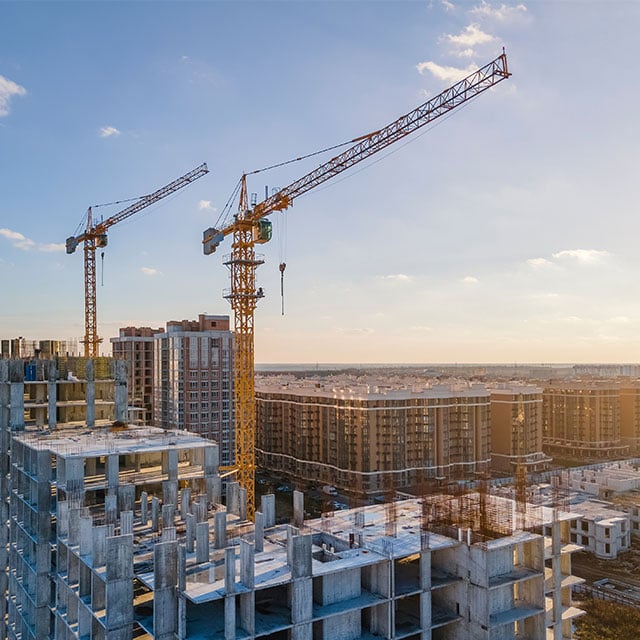Update from the Tax Court
On May 14, 2020, Chief Justice Rossiter and Associate Chief Justice Lamarre of the Tax Court of Canada provided an update on the resumption of operations of the Tax Court to the members of the Canadian Bar Association Tax Court Bench and Bar Committee (Jehad Haymour is a member of the Canadian Bar Association Tax Court Bench and Bar Committee.).
On May 15, 2020, Chief Justice Rossiter also provided an update to the Canadian Tax Foundation membership by way of a webinar.
The following is a summary of the Tax Court’s update and an outline of the short-term challenges faced by the Tax Court to the resumption of business as usual.
Timing for Resumption of Services
The Tax Court and its Registry offices across the country have been closed for the transaction of business since March 16, 2020, and will remain closed until further notice.
Chief Justice Rossiter reiterated that the Tax Court is not a court of essential services, but rather a fiscal court under the federal government's business continuity plan. The Tax Court staff are employed by Courts Administration Service. As such, the Tax Court requires a general government direction before its staff can return to work and it can resume normal operations. In this regard, the federal government may provide a further update on May 25, 2020, as to when non-essential government services may resume, including the services provided by the Tax Court.
The Chief Justice provided the following three key dates for the resumption of Tax Court business, with the latter two dates being fully conditional upon the timing of the first date:
- The date that the Tax Court staff are permitted to return to work;
- The date that the Tax Court can reasonably resume operations and be open for the transaction of court business; and
- The date that Tax Court sittings may resume.
While the Tax Court has had various discussions with Courts Administration Service and other federal government administrators, the Chief Justice noted that there is no current information available to the Tax Court as to when its staff will be able to return to work.
Cancellation of Sittings
The Tax Court previously cancelled all scheduled sittings and conference calls for the period of March 16 to May 29, 2020. The Tax Court has now also cancelled all scheduled sittings and conference calls to July 3, 2020.
Logistics for Resumption of Services
During the closure, the Tax Court has been focusing on the logistics as to how it will open for business once the return to work restrictions are lifted. Criteria to be considered for a safe return include:
- Determining the number of staff that can return to work at any given time keeping in mind social distancing considerations;
- The procurement of the necessary personal protective equipment for the staff and judges;
- The lifting of travel restrictions;
- Arranging for courtroom configurations that provide for safe distancing of the litigants and witnesses;
- The need for site inspections from government health and occupational health and safety inspectors of the courtrooms; and
- The restrictions applicable in a particular province being lifted.
Ability to Proceed by Way of E-Trials
During the COVID-19 pandemic, some courts have been able to hear cases remotely by video conference (E-Trials). These trials occur in a courtroom setting for the Judge and Registrar. However, the litigants, counsel and witnesses are involved in the trial remotely.
While the Tax Court is interested in implementing E-Trials, Chief Justice Rossiter outlined factors currently preventing the Tax Court from being able to accommodate E-Trials.
First, the Tax Court is largely a “paper” court. The Chief Justice noted that there are over 1,000 hearings affected by the COVID-19 shutdown. The court files associated with these hearings contain over 15,000 documents with 2,500 of those documents being in paper form and not digitized (i.e., scanned into the electronic files in a manner that can be accessed remotely). One of the first priorities for the Tax Court administration upon the resumptions of court business will be to digitize the paper portions of the court files and to work with IT professionals to provide for effective remote access to the digitized documents. In this regard, Chief Justice Rossiter indicated that this project will likely take 60 days to implement.
Second, the Tax Court is not fully equipped to hold E-trials. Currently, there is only one courtroom in Toronto that is equipped for E-Trials.
Third, there is a diverse litigant pool that could further restrict the ability to proceed by way of E-Trials. Chief Justice Rossiter advised that 60% of the cases before the Tax Court involve either self-represented litigants or litigants represented by agents that may not have the access to the necessary resources needed to proceed by way of E-Trial. For an effective E-Trial requiring introduction of documents and other evidence, there is a requirement that the litigant (whether represented by counsel, agent or self-represented) be sufficiently familiar with, and in possession of the technology needed to proceed by way of E-Trial.
Chief Justice Rossiter did, however, note the possibility of litigants proceeding with some form of virtual Tax Court trial currently, as long as no witnesses are required to be called to give evidence.
Timetable for Trials
As it stands today, the Chief Justice advised that the earliest that the Tax Court could sit for hearings is July 6, 2020. This restart date for hearings is fluid and dependent upon work restrictions being lifted.
As noted above, when the Tax Court is re-opened, the first order of business will be to deal with the digitization of the documents. The Tax Court will then determine which cases can proceed, and the litigants will be contacted. The Tax Court will seek the consent of General Procedure litigants to proceed to trial on short notice. If the parties do not consent, it is anticipated that these appeals will drop down in the queue. For Informal Procedure matters, a 60-day lead time is needed between when the Tax Court opens and when such cases will be heard.
Addressing the Sittings Backlog
The Chief Justice expanded upon his comments on the steps to be taken to clear the backlog of over 1,000 hearings (trials, motions, case management conferenced, settlement conference, etc.) caused by the Tax Court shutdown (see our summary, The Tax Court Operational Update: Addressing the COVID-19 Shutdown).
Chief Justice Rossiter advised that the following decisions have been made to deal with Tax Court business for the rest of 2020 in the attempt to clear the backlog (assuming work restrictions are lifted in the near term):
- The Tax Court will have two duty judges sitting weekly rather than the current compliment of one judge;
- Additional Tax Court sittings will be added;
- Tax Court sittings will be limited to only the largest volume centres, being Vancouver, Calgary, Edmonton, Toronto, Montreal, Ottawa, Quebec City and Halifax. There is, however, an issue with the availability of court facilities in Toronto. Litigants will be invited to move their hearings from Toronto to other centres to expedite the hearing of their appeals.
- Tax Court Judges will be scheduled to sit for multiple weeks at a time (two or three weeks) in the particular hearing location assigned, to reduce travel demands.
- Tax Court sittings will be scheduled for throughout the summer of 2020 and the Tax Court will not take its customary break from mid-July to mid-August.
- Tax Court sittings will take priority over holidays booked by litigants, counsel and judges.
- Priority for scheduling of hearings will be given to the following:
- General Procedure appeals commenced and disrupted by the shutdown;
- General Procedure appeals adjourned as a result of the shutdown;
- General Procedure cases over Informal Procedure cases; and
- Informal Procedure cases involving employment/contractor matters or tax benefits, such as disability tax credits.
- Motion days will be suspended indefinitely and all motions will be heard in writing unless a party refuses to consent to hearing the motion in writing.
- Case management will be scheduled and heard remotely to the extent possible.
- The judges of the Tax Court have been asked to deal with judgments under reserve as best as they can during the shutdown of the Tax Court. It is expected that most of the current judgments on reserve will be issued shortly after the Tax Court re-opens for business.
- Practice Directions will continue to be issued, with the next one scheduled for the week of May 19, 2020.
- Legislative changes to the Tax Court of Canada Act are forthcoming to amend the statutory deadlines for filing appeals.
- Tax Court sittings will be assigned within four regions to reduce travel demands.
- Procedures for the handling of exhibits will be revised.
- The Tax Court courtroom configuration will be altered to account for social distancing requirements.
- The Tax Court will deal with matters by video conference, where it is possible to do so.
- The Tax Court will aggressively move forward with the digitizing of its files.
Bennett Jones Insights in Light of the Current Delays
The timing and manner in which the Tax Court will reopen is reflective of the general uncertainty affecting Canadians at large. We anticipate a slow ramp-up of Tax Court operations that will require all parties to be prepared, flexible, available and adaptive to the new (and hopefully short-term) "normal".
We anticipate that when the Tax Court reopens, litigants will be encouraged as much as possible to make themselves available to deal with matters that fit within the Tax Court’s schedule rather than their own schedules. In addition, litigants will be expected to have taken reasonable steps "if possible" to advance the procedural aspects of their appeals during the Tax Court shutdown. As a result, we remind you of the benefit of taking, as best as you can, the following steps.
Using the Time to Prepare Your Case and Get Ready
With all of the new demands that will be placed upon the Tax Court's sittings after the Tax Court has reopened for business, parties should use this time to work on ways of advancing tax litigation in an expeditious manner. Parties should focus on litigation steps such as preparing motions to be brought, agreeing upon written examinations for discovery (or portions thereof), dealing with admissions and other procedural matters, and considering settlement approaches.
Get Your Witnesses Prepared
While we are all under social distancing restrictions, the extensive availability of audio and video conferencing technology allows for the use of virtual meetings to prepare witnesses for trial or further prepare for trial.
Narrow the Issues and Discuss Resolution Opportunities
The closure of the Tax Court has necessitated the need for parties to minimize the instance of delays in tax litigation that may arise in the normal course. Keeping lines of communication open with opposing counsel to discuss litigation actions, including agreed statements of fact and requests of admit facts and documents and settlement opportunities, may prove valuable in the long-term in avoiding unnecessary additional delays. These tools should be utilized by litigants in the normal course but will become more necessary in these uncertain times.



















